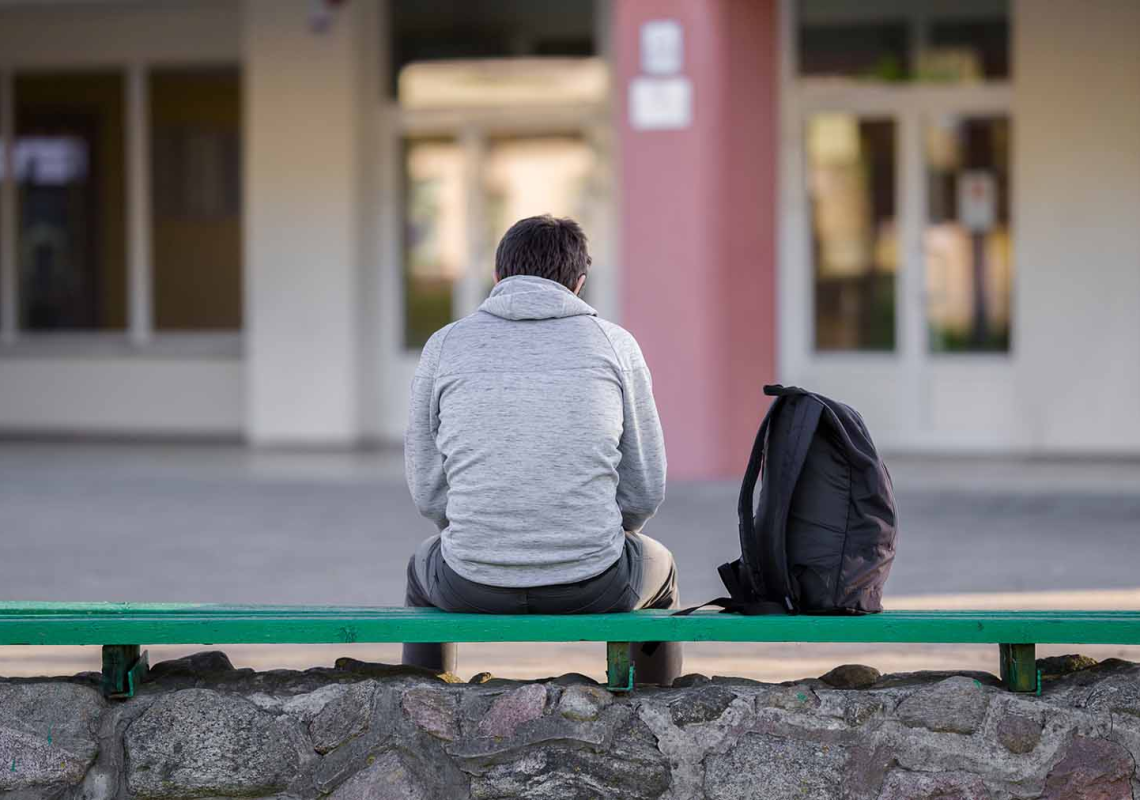Ten years ago, in a historic decision, the U.S. Supreme Court recognized, as it had in earlier cases, that children who commit crimes are fundamentally different from adults – less mature biologically, more vulnerable and susceptible to negative pressures and influences, and therefore less culpable and more likely to change.
It’s one of the reasons this country has had a separate criminal justice system for children for the past century.
But even though this distinction between adults and children is widely accepted in the law and science, thousands of children accused of crimes are still prosecuted in the adult justice system each year – subjecting them to adult jails, where they are often denied adequate educational resources and the mental health and rehabilitative services they need.
No state prosecutes children as adults on felony charges more than Florida, where 4,446 children have been charged with felonies in the adult system over the past five years. And the statistics show that Black children accused of crimes are more likely than white children to be funneled into adult courts and lockups.
What makes Florida an outlier is its harsh “direct file” statute, enacted in 1978 as the era of mass incarceration was taking root in this country and politicians were racing to pass ever-tougher sentencing laws.
Florida’s law grants state prosecutors the extraordinary power to bring adult charges against children as young as 14 – without any review by a judge or a grand jury.
Juvenile court judges can also transfer a child’s case to the adult courts. But that rarely happens. In Florida, direct file prosecutions – those decided by prosecutors themselves – account for more than 98% of the adult charges brought against juveniles in the state.
Rewriting the statute has long been a goal of criminal justice reformers.
“The direct file issue is one we have worked on for more than a decade in this state,” said Scott McCoy, a deputy legal director for the Southern Poverty Law Center who oversaw the effort for several years. “There were 10-, 11-, 12,000 kids being ‘direct filed.’ That was back in the 2008-2009 time frame. The last time I checked, those numbers were coming down rather precipitously in large part due to the advocacy efforts that we pushed.”
Indeed, the number of juveniles arrested and charged as adults in Florida fell to a 10-year low in the 2020-2021 fiscal year, dropping below 800 cases.
But that decline coincided with a more than 20% drop in the number of overall juvenile arrests. The percentage of arrested juveniles who were tried as adults actually increased last year – from 3.2% in 2019-2020 to 3.7%.
“Arrests in the COVID year may have dropped because kids were just not out and about as much and not in school and all that,” McCoy said. “But even with that, Florida has the highest number of direct files for felonies in the country.”
The number of direct file cases among Black teens is also disproportionate to the overall juvenile arrests.
In FY 2020-21, there were 19,086 juveniles arrested statewide; 46% were Black, 37% were white and 16% were Latinx.
Yet, Black juveniles comprised 61% of the children transferred to adult courts.
“The racial disparities in direct file cases are still real and significant, so that is a real problem,” McCoy said.
In pushing to reform the direct file law, the SPLC and its allies have pointed out not only the inherent cruelty of treating incarcerated children as adults but also the fact that it is more cost-effective to handle those individuals as juveniles. An economic analysis commissioned by the SPLC in 2019 concluded that the state would reap a net $3.6 million benefit if all children were moved from the adult criminal justice system to the state’s Department of Juvenile Justice.
“Juvenile courts and facilities are more appropriate for youth, and less expensive than putting them through the adult system,” said Delvin Davis, a regional policy analyst for the SPLC. “Young people in adult facilities are more likely to commit suicide, be sexually assaulted, and be re-arrested later in life compared to youth in the juvenile system.”
Florida became one of the first states to allow for juveniles to be prosecuted in the adult criminal justice system. When the process was introduced in 1978, there were limits on how prosecutors could use the process. But when juvenile crime rates rose in the 1990s, those limits were pared back in response.
The increased use of the process did not affect only those charged with the most egregious crimes.
“It used to be that the majority of direct file kids were being direct filed for nonviolent offenses,” McCoy said. “That was obviously super-problematic.”
There are two types of direct file, mandatory and discretionary. Mandatory direct file is based on the suspect’s age at the time of offense as well as the type of offense.
Under the discretionary direct file process, there are also requirements. For example, Florida’s statute requires that prosecutors consider direct file for any juvenile aged 14 or 15 (at the time of an offense) who is charged with a violent crime or a crime involving the use of a motor vehicle.
That policy runs counter to the recommendations of child justice advocates.
“Our basic policy recommendation is to allow juvenile court judges greater discretion to determine the outcome of a young person rather than the prosecutors,” Davis said. “Direct transfers to adult court should never be mandatory, but instead we can use a due process hearing where a youth can request to be seen before a juvenile court judge.”
Bills to curtail the use of direct file have been filed in the Florida Legislature, but so far the process remains intact.
“The usual opponents to these measures have been the state prosecutors, being that it redirects some of their authority,” Davis said. “Other groups that tend to be more ‘tough on crime,’ like law enforcement, have also put up opposition, although studies have shown youth are less likely to commit crimes when they’re not forced through the adult system.”
One of the major problems with Florida’s direct file system is that there is no way to appeal the process.
“Direct file in Florida is a one-way door,” McCoy said. “Once you’re direct filed into the adult system, there’s no way for a child to ask that the decision be reviewed by anyone else. So once direct file happens, the juvenile court is divested of jurisdiction, the adult court has it. So once you are in, you are in.”
Only four of the 15 jurisdictions in the U.S. with direct file statutes – Florida, Louisiana, Michigan and the District of Columbia — do not allow the decision to be reviewed.
“Florida is one of the few states that don’t have that reverse waiver, that judicial check that allows a judge to review the direct file and see if he or she thinks that it is actually appropriate,” McCoy said. “Florida remains a significant outlier in that aspect of direct file.”
Although the use of direct file has declined, it is still a dangerous tool that prosecutors can use with little or no oversight.
“There was one case where a kid was direct filed for arson for lighting something on fire in a school bathroom,” McCoy said. “I mean, crazy stuff can happen.”
Top photo: (Credit: iStock Photo)
SPLC is a nonprofit, tax-exempt 501(c)(3) organization (EIN: 63-0598743)
400 Washington Avenue
Montgomery, AL 36104






